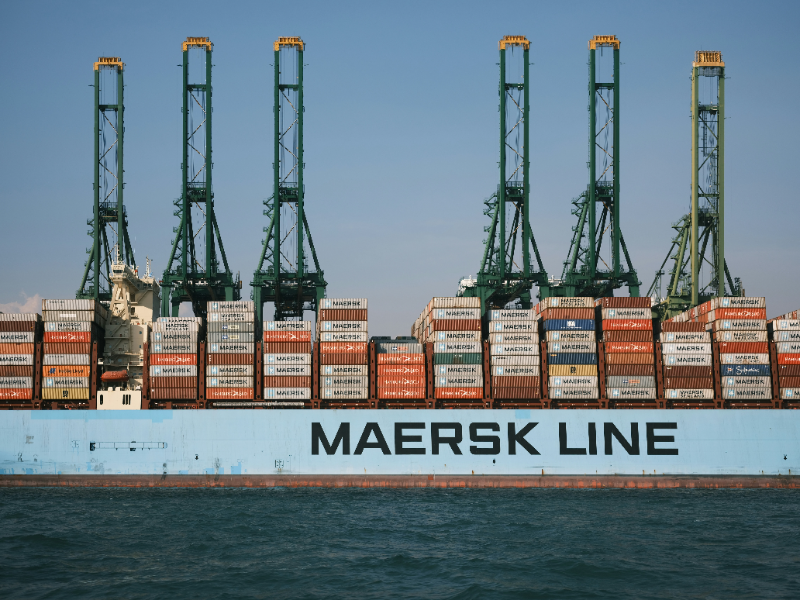Red Sea Congestion Impacts Global Supply Chains
The leading global shipping company, A.P. Moller-Maersk, has announced an upward revision of its profit forecast for the current fiscal year. The adjustment comes as a result of significant congestion in the Red Sea, which has had a more substantial impact on global supply chains than initially anticipated. This bottleneck has led to a surge in freight rates, prompting Maersk to project its underlying earnings before interest, taxes, depreciation, and amortization (EBITDA) to reach between $7 billion and $9 billion, a notable increase from the previously estimated range of $4 billion to $6 billion.
Port Congestion and Freight Rate Surge
Maersk’s revised forecast exceeds the average analyst expectation of $5.86 billion, as reported by Bloomberg. The revision marks the second increase in forecasts by Maersk within a month, signaling ongoing challenges across the world’s supply lines. Among these challenges are disruptions caused by Houthi militant attacks in the Red Sea, which have led to an approximately 80% reduction in container line transits through the Suez Canal. Maersk also highlighted emerging congestion issues at ports, particularly in Asia and the Middle East, further contributing to the escalation of freight rates.
The company anticipates that these developments will bolster its financial performance in the latter half of 2024. The need for additional vessel capacity to navigate alternate routes around Africa is inflating freight rates during a period when the market was expected to experience a downturn, with vessel supply outpacing demand in the post-pandemic landscape.
The adjustments made by A.P. Moller-Maersk in response to maritime disruptions demonstrate the complexities and challenges faced by global supply chains. The increased freight rates and revised profit forecasts shed light on the vulnerabilities present in the industry, accentuated by unexpected events such as Red Sea congestion. As Maersk navigates these obstacles, its ability to adapt and thrive in the face of adversities showcases its resilience and strategic prowess in the maritime sector.



